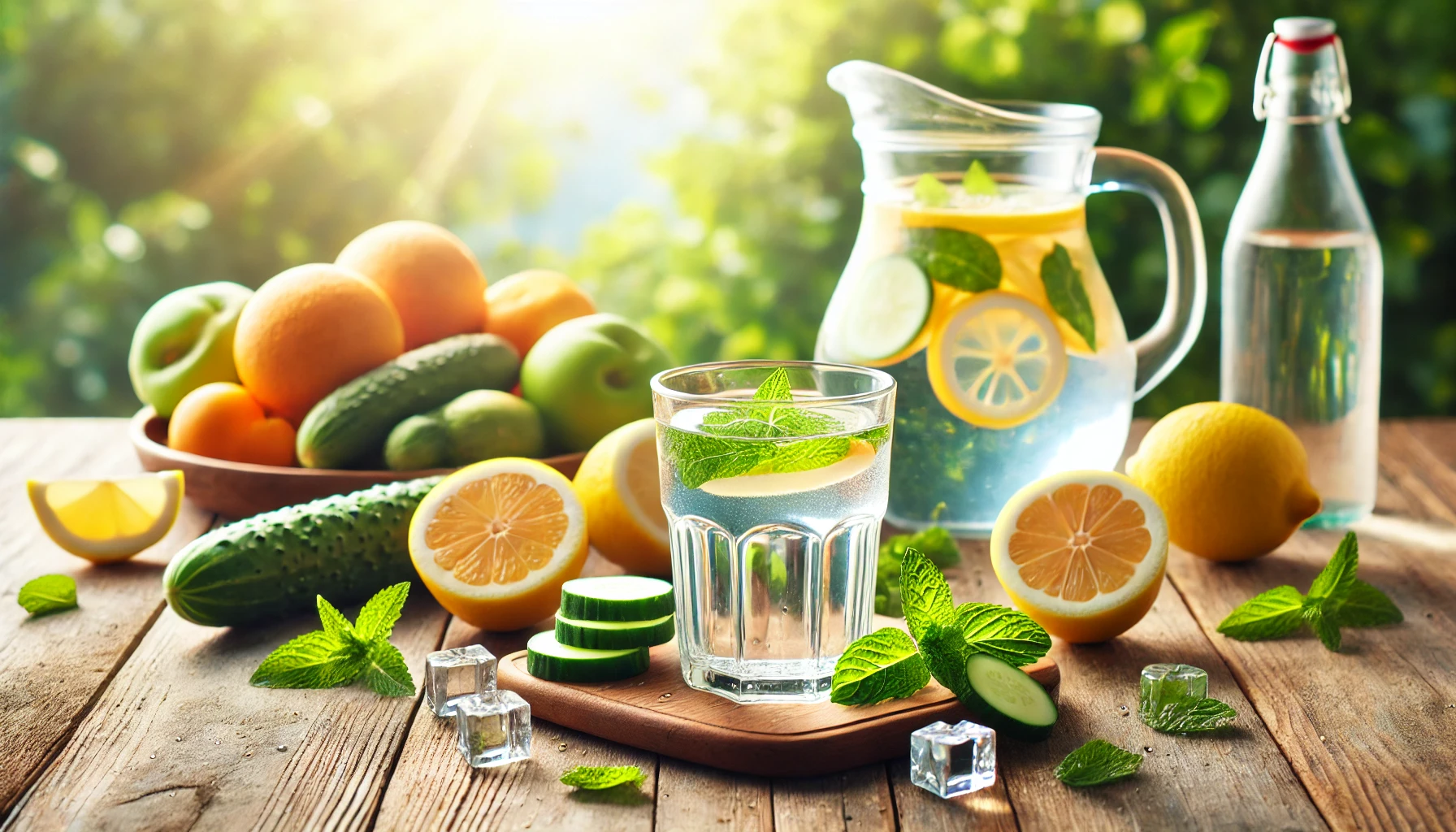Staying hydrated is essential for maintaining your overall health. Water is vital for nearly every function in the body, from regulating temperature to aiding digestion and keeping your skin healthy. Despite its importance, many people don’t drink enough water daily.
Here’s why staying hydrated matters and how you can ensure you’re getting enough water throughout the day.
The Importance of Staying Hydrated
Water makes up about 60% of the human body and plays a critical role in essential processes.
Benefits of staying hydrated:
- Improves physical performance: Dehydration can lead to fatigue, reduced endurance, and muscle cramps. Proper hydration keeps your body energized.
- Enhances brain function: Drinking enough water improves focus, memory, and overall cognitive function.
- Supports digestion: Water helps break down food, absorb nutrients, and prevent constipation.
- Regulates body temperature: Sweating and evaporation help your body cool down, especially during exercise or hot weather.
- Flushes toxins: Staying hydrated supports kidney function and helps remove waste from the body.
- Promotes healthy skin: Adequate hydration keeps your skin looking plump and radiant.
How Much Water Do You Need?
The amount of water you need can vary depending on factors like age, activity level, and climate. A general guideline is to aim for 8–10 cups (2–2.5 liters) of water per day. However, if you exercise regularly or live in a hot climate, you may need more.
Signs of dehydration:
- Dry mouth and lips
- Fatigue or dizziness
- Dark yellow urine
- Muscle cramps
- Headaches
Tips for Staying Hydrated
Drinking enough water doesn’t have to be difficult. These practical tips can help you stay hydrated throughout the day:
1. Start Your Day with Water
Drink a glass of water first thing in the morning to kick-start your hydration. This simple habit helps replenish fluids lost overnight.
2. Carry a Reusable Water Bottle
Having a water bottle with you makes it easy to sip water throughout the day. Choose a bottle with measurement markings to track your intake.
3. Set Reminders
If you often forget to drink water, set alarms or use apps that remind you to stay hydrated. Technology can be a helpful tool to build new habits.
4. Flavor Your Water
If plain water feels boring, add natural flavor with slices of lemon, cucumber, mint, or berries. Infused water is both refreshing and hydrating.
5. Eat Hydrating Foods
Many fruits and vegetables have high water content and contribute to your hydration. Some hydrating options include:
- Watermelon (92% water)
- Cucumbers (95% water)
- Oranges (86% water)
- Lettuce (96% water)
6. Drink Water Before Meals
Having a glass of water before meals not only helps with hydration but can also aid digestion and prevent overeating.
7. Monitor Your Urine Color
A quick way to check your hydration level is by observing the color of your urine. Pale yellow indicates good hydration, while dark yellow or amber may signal dehydration.
8. Adjust for Exercise and Weather
When you sweat more, whether due to exercise or hot weather, increase your water intake to compensate for fluid loss.
Drinks to Limit or Avoid
Not all beverages contribute to hydration equally. Some can even have a dehydrating effect.
- Sugary sodas: High in sugar and calories, they offer little nutritional value.
- Alcohol: Acts as a diuretic and can lead to dehydration.
- Caffeinated drinks: While moderate caffeine is fine, excessive consumption may increase fluid loss.
Final Thoughts
Hydration is a cornerstone of good health, yet it’s often overlooked. By adopting simple habits like carrying a water bottle, eating hydrating foods, and monitoring your water intake, you can ensure your body stays well-hydrated.
Remember, water is life—so drink up and enjoy the benefits of staying hydrated every day!
